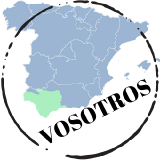5.10: Sección 2 - Gramática - El condicional
- Page ID
- 112454
Ejemplos del Condicional: Lectura
Read the short text below; note that verbs in the conditional form are in bold.
Emigración de EE.UU.
Aunque los EE.UU. tiene fama de ser un país de inmigrantes, también hay gente que lo deja para emigrar a otros lugares del mundo. Podemos preguntarnos: si emigráramos a otro país, ¿cuál escogeríamos? Para los más de 3 millones de estadounidenses que se han ido del país, los gráficos de abajo representan sus respuestas.
--Regi%25C3%25B3n_de_destino.png?revision=1) |
|
Si eres como más de la mitad de los expatriados, te quedarías en Norteamérica: de las personas que estaban a punto de dejar el país en el año 2019, la inmensa mayoría de los emigrantes decidiría mudarse a México, y otros muchos harían que Canadá fuera su nuevo hogar. Algunos de los que quisieron emigrar incluso nunca dejarían el territorio estadounidense y pasarían a vivir en Puerto Rico. Europa también sería un destino popular y 13.6% de la gente en busca de una nueva vida optaría por algún país asiático.
Yo, personalmente, creo que me gustaría vivir en Antártida con los pingüinos.
¿Y tú? Si tuvieras que emigrar, ¿a dónde te mudarías?
Usos del condicional
The conditional has several different purposes, but in most cases it coincides with English use of the word "would". For example, the above text asks the reader to think about where they would move; when making that decision in 2019, many individuals would eventually decide to move to Mexico, while others would make a new home in Canada. The writer indicates that they would like to live in Antartica. While in English each of these examples requires both the use of the verb would with another verb, in Spanish we use only the main verb, and the "would" is communicated by the conjugation.
Uses of the conditional
The conditional can express:
- Courtesy/Politeness in different kinds of circumstances:
- Requests:
- ¿Podrías ayudarme, por favor? (Would you be able to help me, please?)
- ¿Me traerías una taza de café? (Would you bring me a cup of coffee?)
- Desires
- Nos gustaría resolver este problema rápidamente. (We would like to resolve this problem quickly.)
- Preferiría tomar el vino tinto. (I would prefer to have the red wine.)
- Advice
- Deberías hablar con un abogado para conocer tus derechos. (You would ought to talk with a lawyer to learn about your rights. NOTE: This sounds strange in English with "would", but is a more polite way of telling someone what they should do).
- Sería buena idea explorar varias opciones. (It would be a good idea to explore various options.)
- Requests:
- Possibilities in hypothetical situations
- ¿Qué harías tú en esa situación? (What would you do in that situation?)
- Si tuviera un millón de dólares, viajaría alrededor del mundo. (If I had a million dollars, I would travel around the world).
- Commitments or plans made in the past
- Mi colega dijo que terminaría el proyecto antes de la fecha limite. (My partner said that they would finish the project before the deadline.)
- Antes del Covid, pensaba que viajaría a España en 2020. (Before Covid, I thought that I would visit Spain in 2020.)
- Guesses about past conditions
- Ana no vino ayer a trabajar; estaría enferma. (Ana didn't come to work yesterday; she must have been sick. NOTE: This is one of the few cases where the conditional in Spanish doesn't match up with an English "would", but rather "must have"; you'll want to memorize this use separately.)
One important note about English "would": Remember that, in English, "would" is also used to talk about habits or repeated actions in the past (ex: "As a child, I would often swim in the river near my house."); in Spanish, this is conveyed by the imperfect (ex: "De niña, nadaba frecuentemente en el río cerca de mi casa".) and NOT the conditional.
Conjugating verbs in the conditional
Just like the future, the conditional is easy to conjugate: you only have to learn one set of endings, which attach to the infinitive, and there are very few irregulars.
Conditional endings
| yo: -ía | nosotrxs: -íamos |
|
tú: -ías |
|
| Ud, él, ella: -ía | Ustedes, ellxs: -ían |
| *For more information on the regional forms "vos" and "vosotros", click the images above | |
Verbos regulares
| Pronombre de sujeto | Terminación | Verbo | Ejemplo |
| yo | -ía | protestar | Yo en tu lugar protestaría esta situación. |
| tú | -ías | emigrar | ¿Bajo qué condiciones emigrarías de los EE.UU.? |
| Ud, él, ella | -ía | ser | Nuestra amiga sería buena candidata para alcalde. |
| nosotrxs | -íamos | deber | Deberíamos prestar más atención a los asuntos locales. |
| Uds, ellxs | -ían | vivir | Si tuvieran la opción, mis hermanos vivirían cerca del mar. |
Verbos irregulares
The few verbs that are irregular in the conditional are the same ones, and have the same roots, as the irregulars in the future that you learned in Chapter 4. Once you have the irregular root, you can add the endings from above as you do with any other verb.
To briefly review, there are three groups of irregular verbs in the future and the conditional:
- Verbs that lose the -e- in the infinitive: caber (cabr-), haber (habr-), poder (podr-), querer (querr-), saber (sabr-)
- Verbs that lose an -e- or an -i- and replace it with a -d-: poner (pondr-), salir (saldr-), tener (tendr-), valer (valdr-), venir (vendr-)
- Two verbs whose roots must be memorized: decir (dir-) and hacer (har-)
Videolección
Clicking on the image below will bring you to a video that reviews the first two conditional uses (politeness, hypothetical situations) and provides additional examples.
¡A practicar!
Actividad 1
Con un grupo, responde a la lectura al principio de esta página, hipotetizando sobre las siguientes preguntas:
- ¿Por qué más de 3 millones de personas se emigrarían de los EE.UU.?
- ¿Por qué el 38% de los emigrantes se irían a América Latina y el Caribe?
- ¿Por qué tan pocas personas escogerían Oceanía y África?
- Si tuvieras que emigrar, ¿a dónde te mudarías? ¿Por qué?
Actividad 2
Con un grupo, hagan un juego al estilo Simon Says con las siguientes pautas:
- La primera persona hace una petición o da una recomendación de una acción a una persona en el grupo, usando o un mandato o el condicional para expresar cortesía.
- Si la primera persona ha usado una expresión de cortesía con el condicional, la otra persona tiene que hacer la acción; si no, no la debe hacer.
Ejemplo 1:
- Persona A dice, "¿Tocarías la nariz?"
- Persona B toca su nariz, porque Persona A ha usado una expresión de cortesía con el condicional.
Ejemplo 2:
- Persona B dice, "Dame el lápiz, por favor."
- Persona A no hace nada, porque aunque Persona B ha dicho "por favor", no ha usado el condicional para indicar cortesía.
Ejemplo 3:
- Persona A dice, "Deberías darte una vuelta."
- Persona B se da una vuelta, porque Persona A ha dado una recomendación usando el condicional para expresar cortesía.


_--_Destinos_m%25C3%25A1s_populares.png?revision=1)


